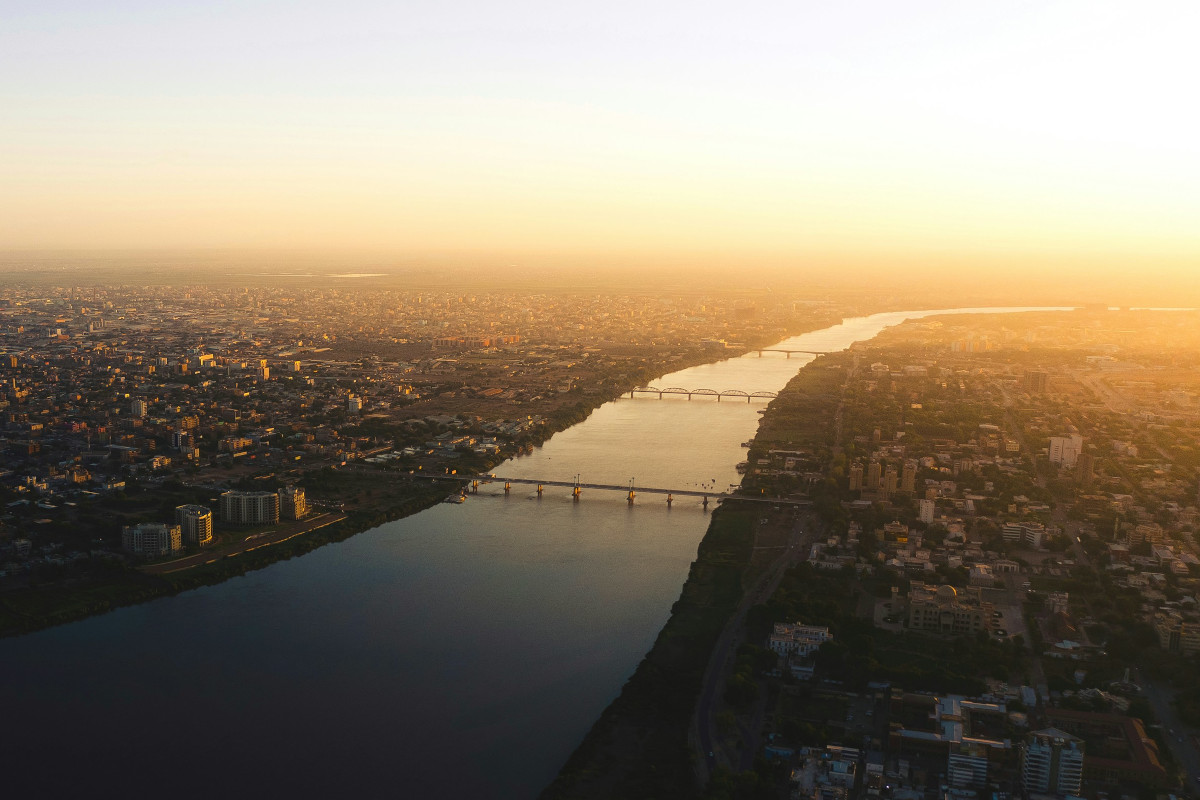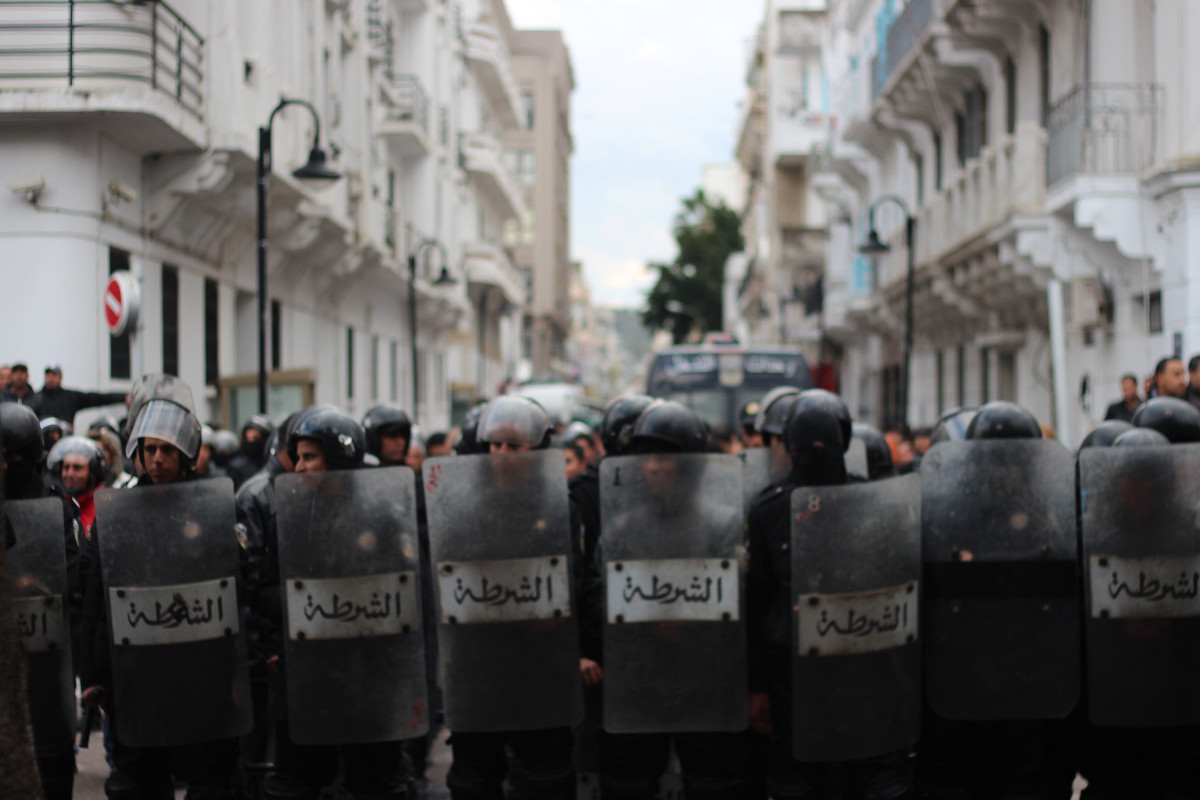Ignoring the root causes of disaster: the EU and Sudan
Topic
Country/Region
14 October 2024
In June, the Belgian Presidency of the Council of the EU circulated a paper on Sudan to the Working Party on External Aspects of Asylum and Migration (EMWP). The document offered an overview of the situation of war and displacement in this country, which has been ongoing since April 2023. It omits several issues that are crucial for a meaningful understanding of the situation.
Support our work: become a Friend of Statewatch from as little as £1/€1 per month.

Image: Abdulaziz Mohammed, Unsplash
Document:
- The current situation in Sudan and its impact on the region - Presidency paper (pdf)
- Outsourcing borders document archive
The paper’s introductory section makes clear that the EU’s interest in the country is tied to its migration control agenda.
The Belgian Presidency (in post from January to June 2024) said it aimed to address the “root causes of migration and forced displacement,” seeking a “balanced cooperation with key countries of origin and transit and building partnerships.” This would require the “continuous monitoring of the migratory route,” to “analyze the potential impact of the crisis situations on the European Union and the tools we have at our disposal to improve our resilience.”
Sudanese have good reasons to flee. The ongoing war has, from the beginning, been meant to destroy the social fabric of the Sudanese Revolution, which started in December 2018 and was overthrown in the Coup of the Generals in October 2021.
There is no legitimate government with which peace negotiations could take place. There are two parties to the conflict: the Rapid Support Forces, which have previously been legitimized through EU partnership to act as border guards, under the leadership of Hemmeti (Mohamed Hamdan Dagalo). The RSF evolved from the Janjaweed, who were responsible for the genocide in Darfur in the early 2000s, and they act in a close coalition with the United Arab Emirates (UAE). The other party are the Sudanese Armed Forces (SAF) and their Islamist supporters, who hope to win the war, and power, for the next 20 years.
The UAE and RSF are taking part in the US-led peace negotiations and claim to be open to providing humanitarian aid to the people whom they themselves have driven out of Darfur, Khartoum, Gezira, Gedarif, and the Blue Nile, causing the world’s largest humanitarian and internal displacement crisis. The Norwegian and the Danish Refugee Councils speak of a starvation crisis of “historic proportions.” Sudan will no longer be the same after the war. Agro-industry and large herds of cattle will spread across the areas where people used to live. Gold mines will have been plundered, and cities will be reduced to places of poverty.
Ten million displaced people, two million who have fled to neighbouring countries – but the EU's chief concern relates to the 8,000 Sudanese who have made it into the EU “illegally,” most of them on the deadly route across the Mediterranean. The document refers to “resilience.” It is “European” resilience, not that of the people fleeing. In the interplay between coastguards and militias, the EU’s asylum system and Frontex, what is meant by resilience other than “keep them out”?
What the document correctly describes
Section 2 of this document correctly describes the situation in Sudan: the catastrophe, the warring parties, the failed peace negotiations and humanitarian conferences. There is also not much to criticize in the third section, which refers to the effects of the refugee movements on the neighbouring countries. The list of figures is correct, as well as the description of the difficult situation in the refugee camps in Chad, the situation of the refugees who have been illegalized in Egypt, and the push-backs from there back into the war zone. Indeed, it is impossible to hide the extent of the current disaster in Sudan.
One month after the document was published, Switzerland initiated negotiations under US sponsorship. They failed because the US and EU want to reproduce the same structure of an extractive and dependent economy by bringing neoliberal factions to the seat of power. This neglects the voice of the majority of the Sudanese people represented in the widely spread grassroots organization of the Resistance Committees and their political vision to end the war.
There is, however, much that the paper does not say.
What the paper conceals
“Further funding has been contracted with international implementing partners (following the no policy engagement with state authorities, meaning that no funding is being provided to the de facto authorities).”
As to the international partners, the UAE is sailing under the flag of the Red Crescent, delivering aid and weapons with the very same cargo planes. Other vital actors offering humanitarian relief in Sudan are not mentioned in the document or supported by the EU. Prime among these are the numerous Resistance Committees, which are still active in many regions.
These committees were civil society’s most important achievement in the revolution, but they are being worn down by all international actors involved, and the population is being reduced to a humanitarian problem to be managed. The EU paper describes the destruction of “the social fabric to a catastrophic degree.” The achievements of the revolution, that could have helped to repair that social fabric, are being undermined – if not wiped out altogether – through the arrangement reached by the EU and other actors with the UAE in the Geneva peace talks.
“The changing geo-political context makes Sudan even more important for the EU's geo-strategic interests”
“Geostrategic interests” – this shoe is one size too big for the EU. East Africa has become the plaything of the interests of the Emirates and, to a lesser extent, the interests of Saudi Arabia, Egypt, Ethiopia and Turkey. Europe is aligning itself with the interests of the Gulf states, especially the Emirates, which the USA has just declared to be their most important regional ally. The old west needs petrodollars and energy partnerships on a scale far beyond that which East Africa could provide.
The Emirates, however, are following their own strategy, which, in addition to dealing specifically with migrant labour, is about logistics, investment and influence through their “Belt of Bribes” (designed to foster closer connections with Djibouti, Somalia, Ethiopia, Kenya, Egypt and Chad). Since the Arab Revolution, the country has also consistently pushed a counter-revolutionary agenda directed against democratic movements and in favour of Islamist policies. For better or worse, the EU is letting the Emirates have their way. These geopolitical constellations are one of the root causes of many problems in the region, especially regarding the expulsion of populations and overcrowded refugee camps in Chad, Kenya, and elsewhere.
Refugee containment above all else
However, the most important root cause of the EU's problems in East Africa, West Asia, and North Africa (WANA) is that efforts at containing refugees override all other political priorities. This has led to the EU supporting the RSF militia for years, thus contributing to its international reputation. For this reason alone, the EU is partly to blame for the rise of the RSF as an international actor.
Much more important in our eyes, however, is the very high price of refugee containment in North Africa, in which the EU is involved with both overt and covert means. The EU paper mentions some 8,000 refugees from Sudan who have made their way across the central Mediterranean route, but it does not mention the tens of thousands who are stranded in Libya and Tunisia and who are currently eking out a living in informal camps in olive groves, or who are being deported to the desert, after their boats were intercepted by the Tunisian coastguard.
Alternative approaches for the EU to support Sudan
This is not the place to discuss the political preferences of the European electorate. These are deeply at odds with global developments and are causing a deep crisis in Western democracies. It would have been the responsibility of the political class to seek a balance between European electorates and the interests of the populations in the Global South. Instead, they are following right-wing narratives, thus digging their own graves.
In relation to Sudan, this political responsibility could have found its starting point in three areas:
There are ways to support the Resistance Committees (RCs) in Sudan and to include them in the scenario of peace solutions. This keeps at least parts of the Sudanese social fabric alive and, at the same time, creates mechanisms to distribute humanitarian aid inside the country, where it is needed no less than in the refugee camps. Investing in the RCs is the only way to stop refugees from being forced to cross the borders and to save the last resources of democracy for Sudan.
It would be possible for the EU to keep a critical distance from the new regional imperialism as practised by the Emirates, which involves promoting a form of capitalism that uses people only as a mobile workforce and otherwise sees them as best located in refugee camps.
Welcoming Sudanese refugees in the EU as Ukrainians have been. These people would earn money and support their relatives as best they could. This would raise far more in remittances than the EU could ever mobilize.
The EU's funding for humanitarian issues is considerable indeed. In a similar vein, the Emirates also provides a lot of money. But this is money with an aftertaste: the Emirates wants to dispose of the people who disturb their investments, while the EU seeks to ward off refugees. In a way, this is an alliance of villains.
Conclusion
To sum up, the document highlights the EU’s blindness – or willing silence – towards two critical issues:
The role of the UAE in fueling the Sudan war that even the Security Council couldn't ignore in its report in April 2024
The UAE has played a notably destabilizing role in the ongoing Sudanese conflict, intensifying a war that has already devastated the region and strained international humanitarian resources. By supplying the Rapid Support Forces (RSF) with substantial military aid and financial backing, the UAE has empowered one of the most aggressive actors in the Sudanese conflict.
This external support has contributed to the escalation and prolongation of hostilities, making it harder for either side to pursue peace or for international mediators to negotiate a ceasefire. This intervention has not only fueled violence but has also destabilized neighbouring regions, further stretching humanitarian aid and triggering widespread displacement, with millions fleeing conflict zones.
Despite international condemnation, the UAE’s ongoing interference in Sudan reflects broader geopolitical ambitions that disregard the severe humanitarian fallout, making it a critical factor in Sudan’s worsening crisis.
The EU’s disregard for Sudan’s Resistance Committees (RCs) has critically weakened peacebuilding efforts and local resilience in Sudan
These grassroots organizations, rooted in Sudan’s communities and central to civil resistance, represent a strong voice for democratic governance and social justice. By sidelining the RCs, the international community has failed to harness one of Sudan’s most organized and impactful forces for peace.
This exclusion alienates local actors who hold invaluable knowledge of the conflict's socio-political fabric and are instrumental in mobilizing community support for nonviolent resistance and democratic transition.
Without engaging these groups, peace initiatives risk being perceived as disconnected from the will of the Sudanese people, reducing their legitimacy and effectiveness. Recognizing and involving the RCs is essential to ensure that peacebuilding efforts are sustainable and grounded in local support, which is critical for any lasting solution to Sudan's crisis.
Horn of Africa Media Office, c/o migration-control.info
Our work is only possible with your support.
Become a Friend of Statewatch from as little as £1/€1 per month.
Previous article
Thematic and regional developments
Next article
EU support for violent and authoritarian regimes: no end in sight
Spotted an error? If you've spotted a problem with this page, just click once to let us know.
